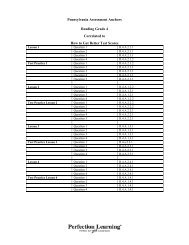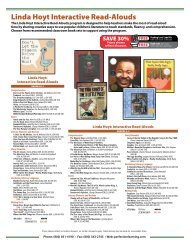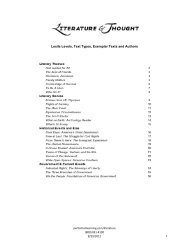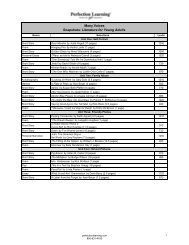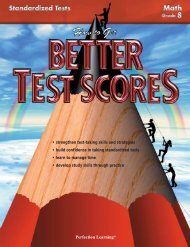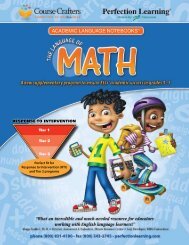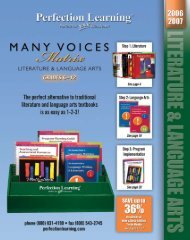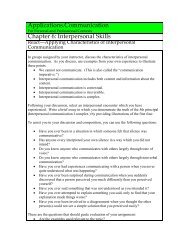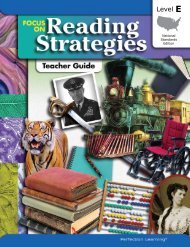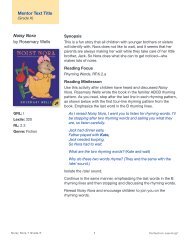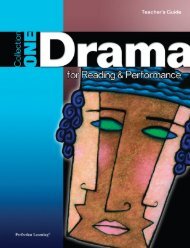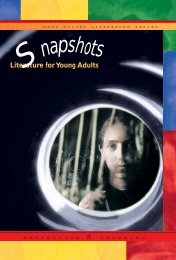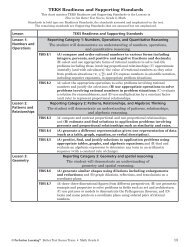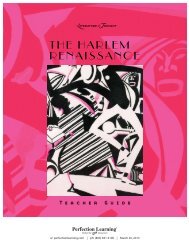Student Edition - Perfection Learning
Student Edition - Perfection Learning
Student Edition - Perfection Learning
Create successful ePaper yourself
Turn your PDF publications into a flip-book with our unique Google optimized e-Paper software.
Speak and ListenRemember that plays are written to be acted, not read silently. Readingout loud—whether in a group or alone—helps you to “hear” themeaning. Listening to another reader will also help. You might alsoenjoy listening to a recording of the play by professional actors.Clues and CuesShakespeare was sparing in his use of stage directions. In fact, many ofthose in modern editions were added by later editors. Added stagedirections are usually indicated by brackets. For example, [aside] tellsthe actor to give the audience information that the other characterscan’t hear.The Play’s the ThingFinally, if you can’t figure out every word in the play, don’t getdiscouraged. The people in Shakespeare’s audience couldn’t either. Atthat time, language was changing rapidly and standardized spelling,punctuation, grammar, and even dictionaries did not exist. Besides,Shakespeare loved to play with words. He made up new combinations,like fat-guts and mumble-news. To make matters worse, the actorsprobably spoke very rapidly. But the audience didn’t strain to catchevery word. They went to a Shakespeare play for the same reasons wego to a movie—to get caught up in the story and the acting, to have agreat laugh, an exciting adventure, or a good cry.14Romeo and Juliet



